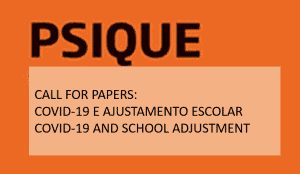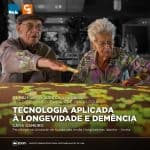Scientific research, currently in the area of Behavioral Sciences, and more specifically in Psychology, is responsible for identifying, analyzing and developing intervention models for vulnerable groups such as refugees and asylum seekers. Military conflicts and oppressive regimes in several countries are causing an exponential increase in the forced mobility of children and adults, mainly destined for European countries. The reality of Portugal as a host country is not fully known. This is especially true because it is the focus of this study, with regard to understanding trauma and possible Post-Traumatic Stress Disorder (PTSD) in the Ukrainian refugee population. On the one hand, there is an urgent need to (re)know the reality of the mental health of this population – specifically with regard to trauma – in the context of forced mobility resulting from war experiences and contexts of human rights violations. On the other hand, there are no known instruments for assessing PTSD for the refugee population in Portugal under the protection of international protection. According to the DSM-5 (Diagnostic and Statistical Manual of Mental Disorders, 2022), PTSD refers to a set of symptoms that manifests itself shortly after exposure to events characterized as traumatic or potentially acutely stressful, and which the individual experiences directly or indirectly. This symptomatology – after the event – is observable through behaviors such as excessive fear, repetitively experiencing the event (intrusive memories), constant avoidance when faced with stimuli associated with the trauma, and hyper-vigilance. To diagnose PTSD, this set of symptoms must last for more than four weeks. Regarding the diagnosis of PTSD, the literature provides some instruments (scales or questionnaires) for its assessment, applicable to civilians and military personnel involved in traumatic events (not yet validated for most populations and with translated versions without scientific supervision). With regard to current conflicts, the refugee and asylum-seeking population may present intense symptoms of trauma (with direct implications for the quality of sleep of children and adults) that cannot be neglected by research and professionals who ensure the inclusion of refugees. In fact, this is one of the priorities inherent in the United Nations 2030 Agenda. The PCL-5 instrument by Carvalho, da Motta and Pinto-Gouveia (2020), which originated from the Posttraumatic Stress Disorder Checklist for DSM-5 (Weathers et al., 1993, with subsequent updates by the same authors (2013)), has been used in populations that are victims of war contexts, but not only (for example, public security professionals and civilians exposed to events of domestic violence and sexual violence). In previous validation studies with other nationalities in mostly war contexts, the PCL-5 scale has been recognized for its psychometric robustness and effective adaptation to the four-factor model of PTSD of the DSM-5. The application of the PCL-5 with satisfactory rates has been attested in samples of veterans (Blevins et al., 2015; Bovin et al., 2016; Hoge et al., 2014; Keen et al., 2008; Konecky et al., 2015; Murphy et al., 2017), firefighters (Carvalho, da Motta & Pinto-Gouveia, 2020), and refugees (Ibrahim et al., 2018), immigrants (Hall et al., 2019), and other cases such as student samples (Ashbaugh et al., 2016; Blevins et al., 2015). In these cross-cultural studies, very satisfactory cut-off points were found (between 31 and 37), but there were variations to consider as the populations also varied (from 25 points to 42; the scale has a maximum of 80 points) (Roberts et al., 2021). The aforementioned authors are unanimous on the need to establish and differentiate cut-off points according to samples and cultures, but the frequent relationship (and sometimes generating ambiguity in diagnosis) with other comorbidities such as depression and anxiety is also known (Miles et al., 2008; Roberts et al., 2020). The scale is composed of the following subscales: Intrusion (α = .89), Avoidance (α = .76), Negative Cognitive and Mood Changes (α = .87) and Activation/Reactivity (α = .85). Thus, given the extreme scarcity of valid and scientific literature on trauma in the refugee and asylum-seeking population (in Portugal), the PCL-5 will be administered to several groups from different countries of origin (1); and the Pittsburgh Sleep Questionnaire to assess sleep behavior and quality in the same groups (2). In addition to the PCL-5, the LEC-5 (Life Events Checklist) will be integrated, which is important to meet criterion A of the PCL-5 (and helps assess the construct) in the assessment and protocol. Thus, we will be able to validate the psychometric properties of different versions of the identified instruments, taking into account the main mother tongues of displaced populations; as well as understand aspects of vulnerability and idiosyncrasies of mental health of this new migrant group and in the Portuguese host context.
Assessment of Post-Traumatic Stress Disorder (PTSD) and Sleep in Refugees and Asylum Seekers: PCL-5 and DSM-5 Life Events Checklist in Children and Adults (2022-2025)
Integrated Investigator: Sandra Figueiredo (IR)



